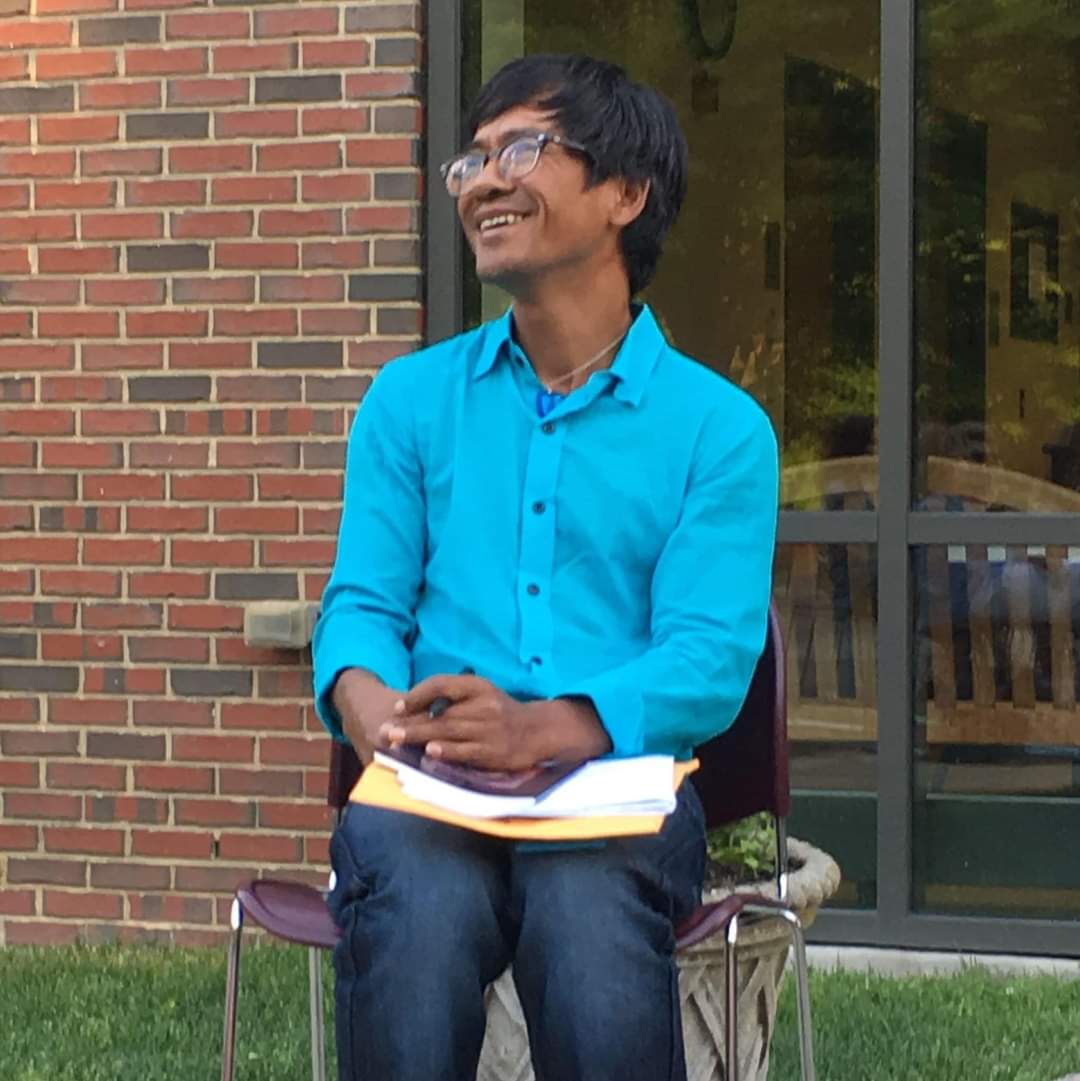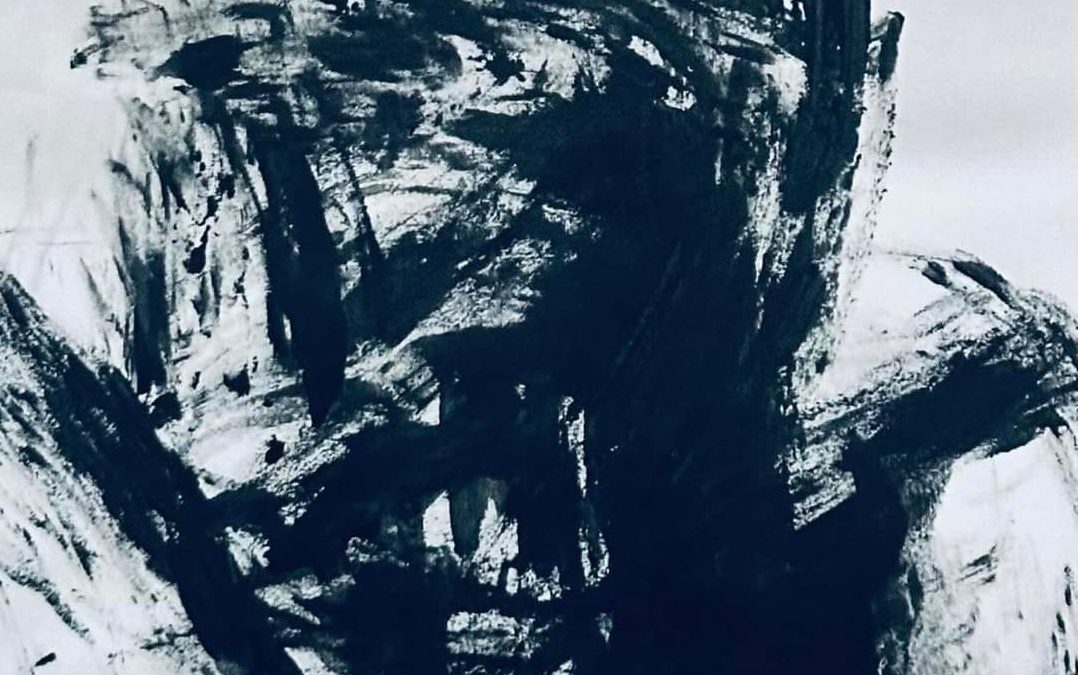Editor’s Note: Chath pierSath asked me to write the introduction to this new collection of poetry, published in 2024 by Carbonation Press. I encourage you to acquire Echoes Lost to Wind with the knowledge that you will be captured in his echoes of the past and the present—and will ride the crazy Ferris Wheel of Life as you witness his uncanny skill of exploring anger, trauma, sexuality, culture, and the Self. The ride is riveting. – Jinx Davis
Chath pierSath is unafraid to reveal himself in his writing or visual art. Whether he writes with anger, contemplation, or ecstasy, his writing leads to intimacy with his readers. He shares the heart of who he is, and he wants to tell you so you may know him more deeply. He knows the most profound journeys are interior in nature. His paintings and poems are original and emanate from solitude as his thoughts wander through alien and familiar terrain. He has experienced travel, migration, and everyday life, which he knows is always filled with moments of depression and banality. In some ways his writing and art is the story of life. Why? Intuitively Chath prepares for the future by means that seldom are mentioned or admitted in fine company. The future lies inside the echoes and silences. Chath knows that history is something tangible and horrible. He knows that it can destroy not only the lives of others but your own life. The poetry in Echoes Lost to Wind will lead you to understand that perhaps fate is something we do to ourselves while blaming an outside force. He reveals that the horrors we do to each other continue long after they are staged. The horror continues without the wars, bombs, and shootings.
I am grateful he included my musings in his work as the introduction to Echoes Lost to Wind. I chose two shorter poems to give you a taste of Chath PierSath’s poetry.
“Chath pierSath, born in Battambang, Cambodia in 1970, survived the Khmer Rouge genocide in Cambodia and grew up in the United States. He is the author of three collections, After: Poems (Abingdon Square, 2009), This Body Mystery: Paintings and Poems (Abingdon Square, 2012), and On Earth Beneath Sky: Poems and Sketches (Loom Press, 2022), and a children’s book, Sinat and the Instrument of the Heart (Soundprints, 2010). Also known internationally for his visual art, he has exhibited in Asia, Europe, and North America. He lives and works on a family farm in the town of Bolton in the Nashoba Valley of central Massachusetts.” – Greg Bem, Carboationn Press
Echoes Lost to Wind is available on Amazon and Lulu. Learn about Carbonation Press and Greg Bem here.
I have read hundreds of verses and novels, both published and unpublished, written by Chath pierSath. His writing is as prolific as his visual art, exploring the depths of human suffering, memories, and the personal and cultural melodramas that haunt and torment us. Each of his published books is bold, courageous, and unflinching in his examination of culture and himself. Simultaneously, his work soothes the reader’s soul and illuminates the universal darkness in our lives.
While his books are birthed from the trauma of the Khmer Rouge and its aftermath in Cambodia, his life in America, his search for love and belonging, and the loss of his mother – it is his unwavering honesty that reverberates after each poem.
A simple Google search of Chad pierSath will provide the reader with skillful reviews of his work, background, and accomplishments. I chose to refrain from reiterating them. Instead, I will be as honest as Chath is about how his poems affect me.
Chath told me why he included the selections you are about to read:
“The idea is that they’re just echoes without a body, shape, or form. They are a flow of thoughts in the wind. They come to me, and then they’re gone. But I took the time to write them down, so they remain re-echoed, maybe in some other forms, shapes to be picked at, digested, or interpreted as something else. It’s a process —- to spit out, regurgitate, repeat, let go, embrace a moment, a thought, a memory, maybe at random. You arrive at this greater end and understand that a sweater or pair of socks may appear from each thread. “
I studied these poems while experiencing a dangerous challenge in my life—the kind that holds you by your throat and leaves you shivering with its consequences and destruction. Reading these poems out loud in the quiet of long nights left me with the understanding that our readiness to console others extends to only what we can do to console ourselves.
As a reader, Chath was consoling me – but only because he constantly consoles himself.
Chath’s poetry affirms his refusal to be defined by the will of others. He can stand by his observations and emotions without apologizing. They belong to him.
He knows there is no hierarchy in suffering and writes with tender observations about those in his life. He illustrates to his readers the perplexing truth that we become more than one in many of our most profound relationships. A child becomes an adult, a guardian to parents, even after the death of a beloved. To play several roles in a lifetime is inevitable despite their consequences. Chath’s willingness to explore these roles pricks and jabs his readers to reflect on their own.
These poems explore what the world and others do to us while embracing the hard truth that they do not define us as much as what we have done to ourselves. Chath does not take his pain and puts it on a mantel to polish like an ornamental clock. He unravels it, sends it to the wind, and revisits it when it returns on a leaf, a landscape, the ache of a farmer’s muscles, or a dream during a cold winter night. Readers will find no traces of sentimentality in his poems. Instead, they will be washed by lingering sorrows for all humans do to tarnish each other and the good Earth. These poems are gifts of eloquent despair.
The exploration of both memory and the present are hallmarks of these poems. Chath pierSath carries his dramatic past without romanticizing it or creating fictional memories. Instead, he throws us darts of images to conjure what seldom can be described. When he writes about more present experiences, he recognizes that they do not surrender as easily to interpretation, leaving his readers with questions with his use of both tragedy and comedy. In a world too crowded with those who want center-stage, Chath’s poems are refreshing despite their subject matter. His truth is simple: the Earth belongs to adults, and we have made it untrustworthy.
His power is creating a narrative using a collection of moments defined by time and space and scattered to the winds. Wherever they land, they become a piece of art, like a sculpture or a painting. Sometimes, his works feel haunted, as if the past is homeless. His poems offer the past a home so that it may live in the present.
We are lucky if we stumble upon them.
To Whom It May Concern
Let it drift
a chance it’ll drift into someone’s hand
throw it.
Ocean vast, free flow
wave ride, brined shove, gravity pushed
2WhomItMayConcern floating by
shore to shore.
One reader apt to reply a life raft,
a savior.
A rescuer in time of need.
Chances taking risks
on these random schemes of life.
In a preponderance of impermanence.
You can rest assured, chances in good faith get good results.
Miraculously, you probably reach a shore before the bottle does.
The message written in blood ink of your birth.
You happened upon a shipwreck of lost chances
now, a castaway in search of a Galapagos with people on it.
Forget Darwin, but all the people you had ever known or loved,
all the people related to you, you couldn’t meet or see and know
them each by name — their happy voices
social creatures alive breathing inside your internal whispers,
a civilization dos and don’ts float out, miraculously concealed from
Hate come true faith, come a God amidst an atheist’s dream —
that shore longed to read your message in the bottle.
A rescuer sure to arrive in a blink of an eye.
A life changing event or another chance to defy death,
writing a poem or a song, to really listen to the calling of birds
What do they really want? Happiness on their fluttering wings, naturally.
The fittest survive. This vulnerability beside themselves
but so free, even loneliness is accepted.
If you pray hard enough, surely stone into a loaf of bread.
Never give up hope and settle out on a life of a mouse, but
a grand old opera house full of singers and dancers heeding to
curtain calls confetti rain down an entire earth full of shores
to receive your honorable request for another chance to live.
If you don’t die of thirst and hunger before
it reached an open, perceptive reader, then
you’re fucked.
The Loneliest You’ll Ever Be
The Loneliest you’ll ever be
Among rocks & trees
A mute further silenced,
Deeper void,
Families & people
Where you lose your voice
Hide yourself a prey
As if life itself
A grand scheme you ought to have
Among wolves or vultures
Or some great anaconda
To swallow you whole
You slipped in and out of
Hope, dreams or faith,
Knowing you will be judged
The moment you start to
Speak among the selfish,
The me centrifugal force
Orbiting around the sun
You get burned
Even when there’s no fire
To put out.
You count trees
Then branches,
Name all the leaves
You can’t get beyond
One hundred to slow down
The pulse of loneliness
Yearning to be accompanied
By true conversations
Of two best friends
Where nothing else matter
But us, even among rocks & trees,
Loneliness is ourselves
We’d be one whole big voice,
Of two selves,
The unbearable minimized
To die knowing you have lived
A life with someone else
You can talk to
Without being judged
At their level.
Silence is all you are,
You’ll ever be,
All that you must,
A child of your past,
Uprooted & voiceless
Even in nature,
True solitude and peace
Scare you to death
Because being scared is all you’ll
Ever be, even to a tree,
Silence speaks all truth
To no truth of your own,
But a worth you must yourself
be comfortable with on a road
Alone.



